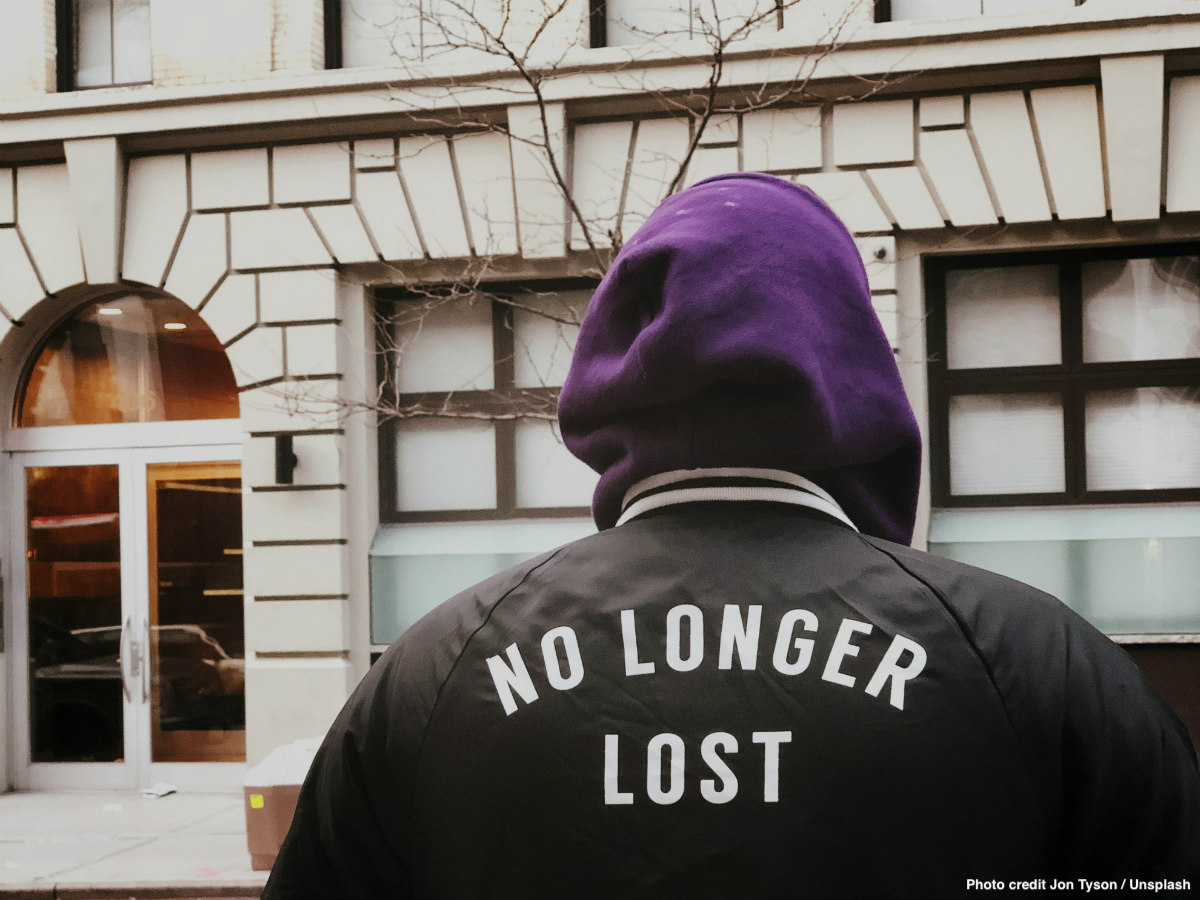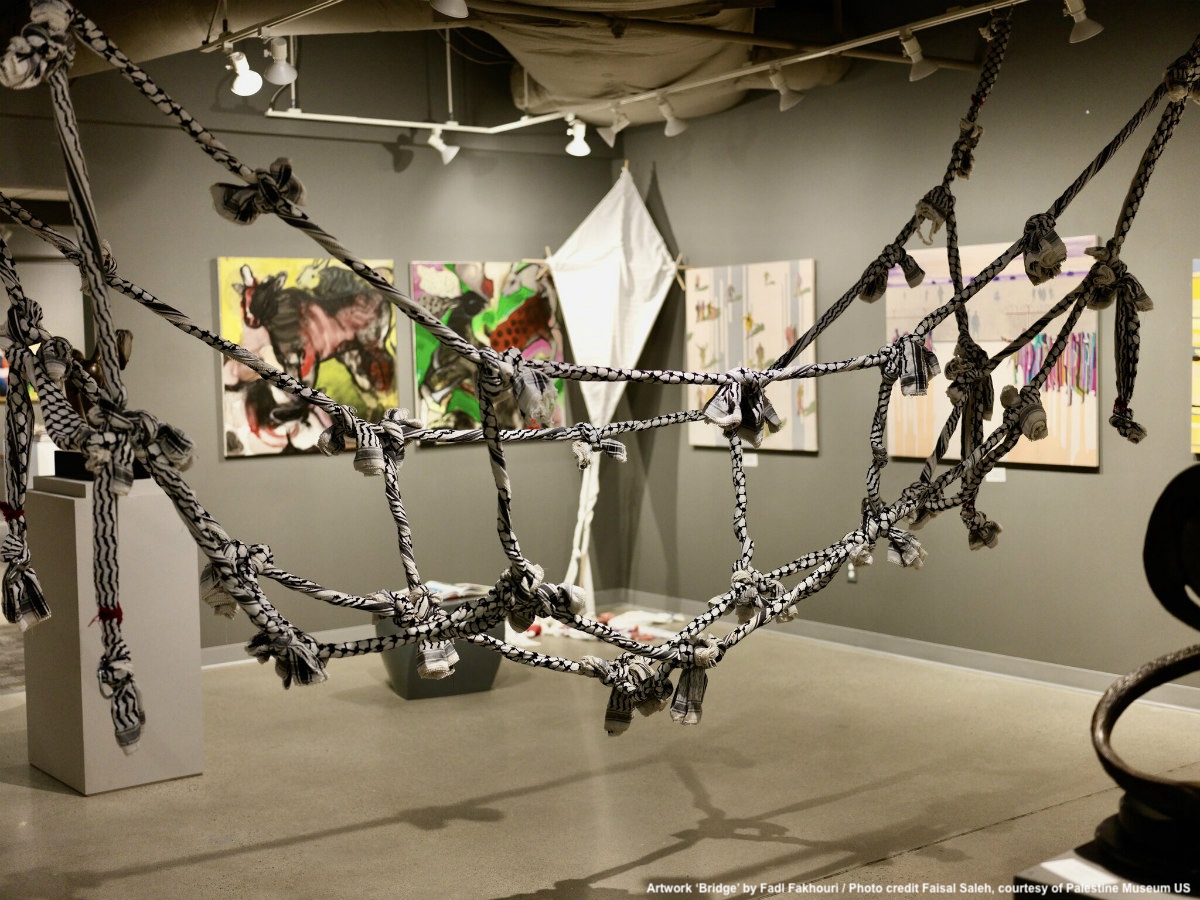“A book must be the axe for the frozen sea within us,” wrote the Czech writer Franz Kafka in a letter in Prague, 1904. It is undisputed that books can open new worlds, touch us, make us think, provide insights into other perspectives, offer a basis for self-identification, and encourage change. Not without reason, libraries in Ancient Greece were described as “places of healing for the soul.”
As early as 335 BC, Aristotle described the effect of creating poetry by using a term from medicine: “catharsis”; and medicine adopted the word “therapeia”, which means that something needs “care.” The ancient Greeks believed that therapy encompassed all aspects of holistic healing – that mind, body, and spirit were all intertwined.
In modern times, soldiers after the Second World War were prescribed reading to treat PTSD, paranoia, insomnia, and other psychological disorders – a method of healing called bibliotherapy. Another therapy called writing therapy or expressive writing similarly engages patients with storytelling, encouraging them to write about their thoughts and feelings. Both therapies rely on stories to “care” for our world of thoughts and emotions.
Today, academic researcher Dr. Lida Tsene and cultural manager and community engagement producer Dina Ntziora are both fervent supporters of the power that the written word has to ease trauma, empower communities and create social connection. In 2015 Tsene founded the Athens Comics Library – the first lending comics’ library in Greece. Ntziora is the founding director of the Refugee Week Greece, a cultural event honoring the resilience, creativity, and invaluable experiences of those who have faced forced displacement. Since 2022 they have worked together with the local refugee community at the Athens Comics Library, designing workshops focused on comic storytelling.
“Every time we organize a workshop and we ask people to create their own fictional stories – whether it is stand-up comedy, comics, or storytelling – they always share their personal stories through the fictional character,” Tsene tells me as she joins the Zoom room. She and Ntziora are not psychotherapists, and their initial goal was not to look at the outcome of their workshops under the psychological lenses. But both soon realized the positive impact of stories on people’s well-being, in particular after the pandemic.
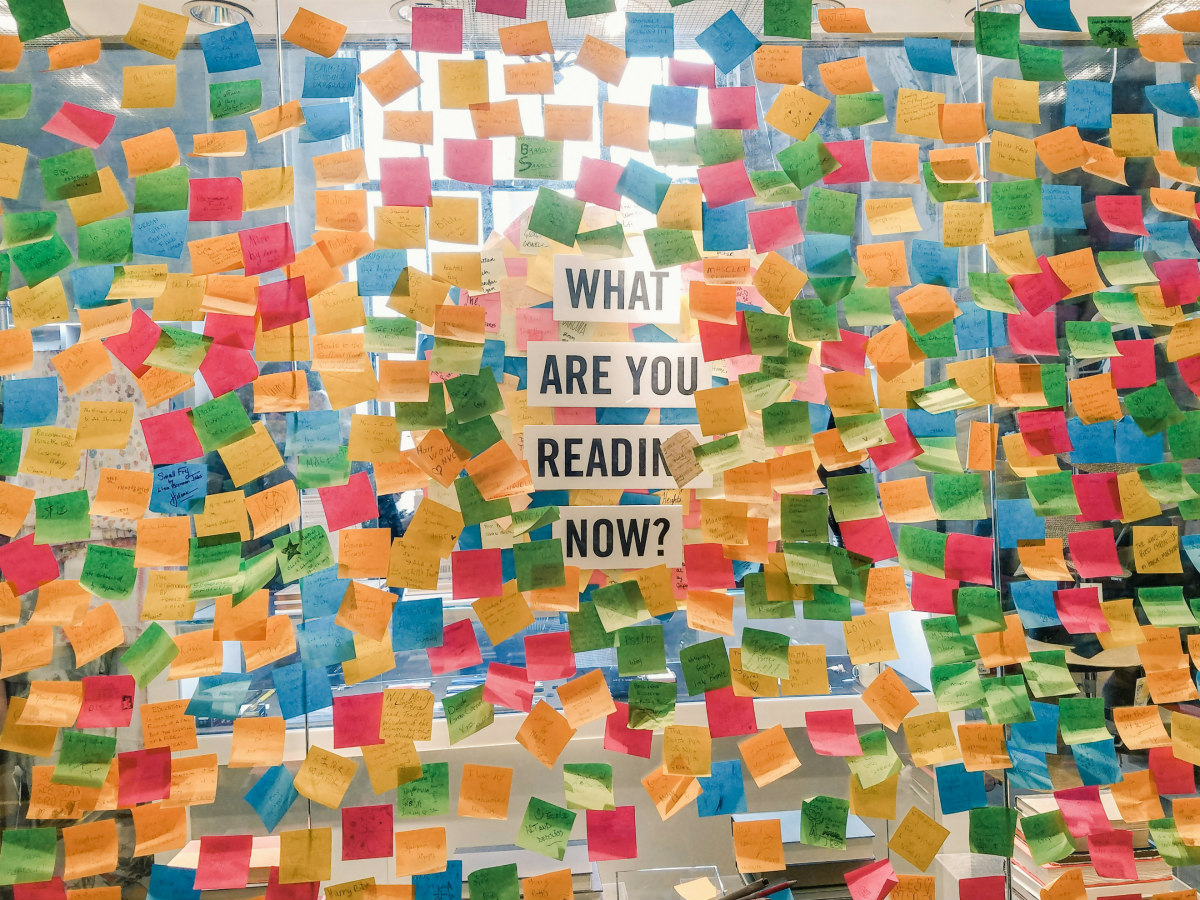
Ntziora had lived in Great Britain where she gained extensive experience as a cultural manager in cultural prescription programs – the referral of a healthcare professional of lonely and isolated people to locally available art and cultural offerings. So she and Tsene asked themselves why not put what they have done at the Athens Comics Library so far under the bigger umbrella of a social prescribing program at libraries in Greece.
***
The concept of social prescribing originated in the UK in the 1990s and it refers to the holistic approach of prescribing contacts and activities that satisfy social and emotional needs and thus promote healing processes. It has also spread around Europe. For instance, in Brussels, Belgium, patients from the psychiatric department at the Brugmann Hospital are accompanied by professionals from the hospital staff to the main art museums of the city. This project is studying the effects of art on those suffering from mental disorders.
Instead of art, Tsene and Ntziora, felt themselves drawn to the power of storytelling, and in 2023 applied with the project “Libraries on Prescription” in Greece to the The Europe Challenge program supported by the European Cultural Foundation. This annual program “brings together teams from libraries and communities across Europe to address social isolation, inequality, disinformation, climate crises and other local challenges by developing, sharing and implementing creative solutions.”
After they received the funding, they made an open call asking libraries in Greece to join their “Libraries on Prescription” program, and close to fifty libraries applied. But the program could only take five libraries for the pilot project, including the Athens Comics Library. Others were the Patras University Library, the public library of the organization for Solidarity, Culture, and Sport in the northern suburbs of Athens (Psychiko Municipality); and two other libraries in rural areas (Rapsani Municipality and the other in the Prison in Agia, Crete).
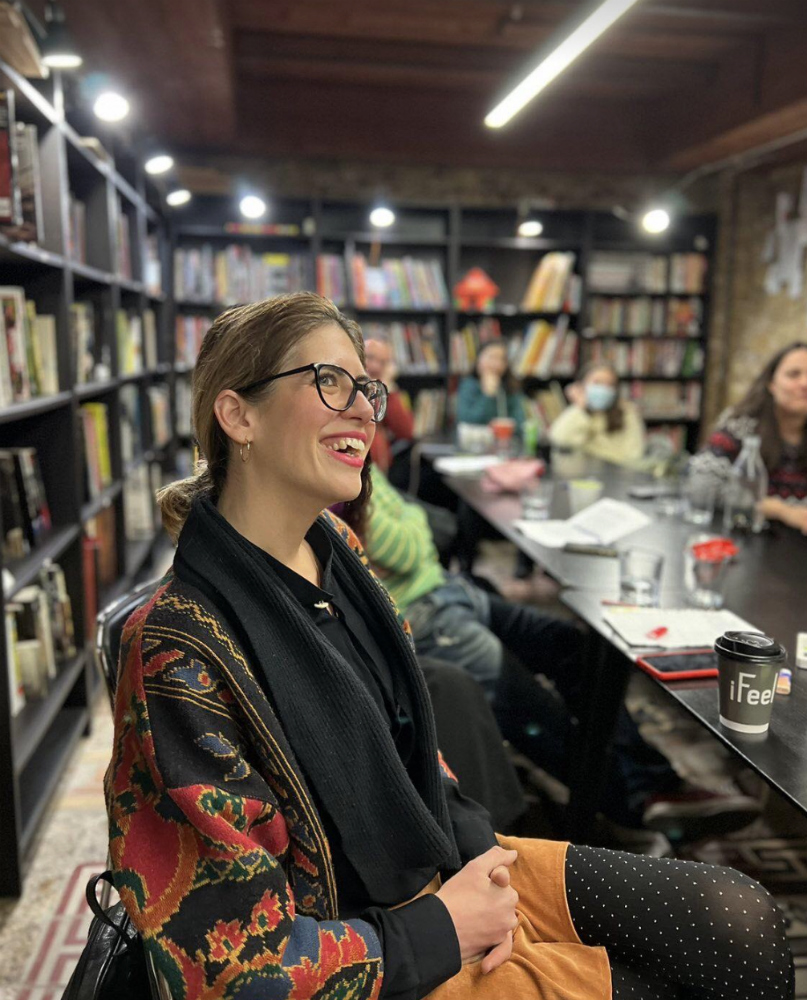
As Tsene and Ntziora launched the program, and openly advertised it as a library program for mental health, the demand was surprisingly high. The pandemic, climate change, wars and conflicts, leave their mark on many of us. Numerous studies have shown that crises have an impact on our psyche. According to the WHO, one in three people suffer from mental health problems in their lifetime. Despite this, discussing mental health is still somewhat taboo in many places across the world, and perhaps because of this, a stigma remains.
Collaborating with mental health professionals, explains Tsene, is crucial. In this way, the team at “Libraries on Prescription” taps into specialized knowledge to design interventions that are effective and tailored to the needs of their target audience. These are people who feel lonely or isolated, belong to a minority or vulnerable group, they have complex social needs, or still suffer the consequences of the pandemic. “The libraries in the program created safe spaces for people who felt comfortable sharing their experiences without feeling judged,” Tsene explains.
The mental health organization E.P.A.P.S.Y. (Association for Regional Development and Mental Health) came on board the project, reports Tsene. “Clinical professionals bring a wealth of expertise and scientific knowledge to the table. Their understanding of mental health conditions, therapeutic interventions, and evidence-based practices ensures that any program or initiative developed is grounded in sound principles.”
E.P.A.P.S.Y. was founded in 1988, on the initiative of Stelios Stylianidis, Professor of Social Psychiatry, proposing an alternative model of psychiatric care in the community based on the principles of Social Psychiatry and Psychosocial Rehabilitation. EPAPSY’s history is synonymous with the history of psychiatric reform in Greece, the struggles for the abolition of psychiatric asylums, the de-stigmatization of mental illness and the care of people with psychosocial problems with respect towards their rights and dignity.
***
During the program until October 2023, a mixed group of refugees worked in a stand-up comedy performance at the Athens Comics Library, as a tool for intercultural understanding and exploring the sense of belonging to a community. “In the first meeting there is always someone who is very eager to speak and say things. Other people are more shy,” explains Tsene.
But things develop naturally. “As the process goes on and people meet over and over again at the same space, there is a magic moment when you see a group of people who had never met before transforming into a team. And I think that moment often comes when someone stands up and shares a story, and others see themselves in that story. And then they go home and say: ‘Okay. I am not alone. Someone else is experiencing what I am experiencing.’” Tsene continues, “So the next time, they will be more confident, perhaps not to share their whole story, but then at least to say: ‘Me too’. After that, they feel connected, feel some sense of belonging.”
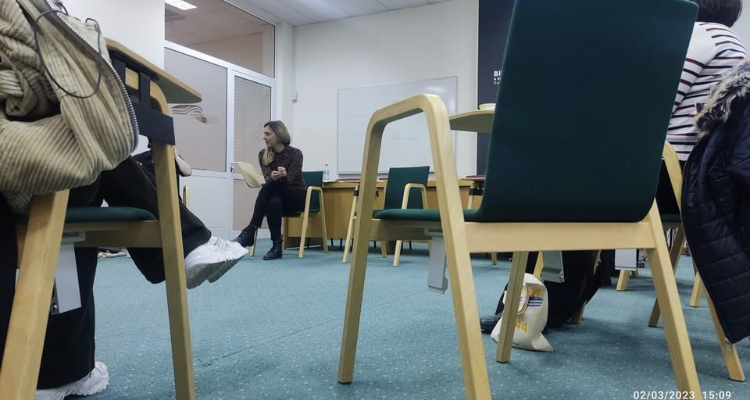
The presence of a trained facilitator helps the program’s participants to respect each others’ identities. Strikingly, the different languages are no barrier. “There is always someone who speaks a little bit of Arabic, Farsi, and so on,” smiles Tsene. And she adds, “The peer-to-peer translation also helps with group bonding.” Tsene and Ntziora tried to use translators but the participants ended up being more connected to them than the facilitator, losing the intention of the whole process.
The public library of the Organization for Solidarity, Culture, and Sports in the Psychiko Municipality has created a reading club for kids with learning disabilities. Kids gathered for half an hour a week and read only a page each time. “But even that one page made such a big impact,” says Tsene. “I remember one saying: ‘When I hear your voice narrating the story it warms my heart’.”
At the Patras University library students worked in a creative writing circle to ease high levels of stress. “Librarians at the university found out that the words most googled by students was suicide,” explains Tsene. Now the students’ short stories are published in an online book entitled The Power of the Words.
E.P.A.P.S.Y. has created an assessment test for the “Libraries on Prescription” program in Greece. It’s based on a series of indicators that demonstrate reductions in the level of anxiety and isolation, improved social connection, and the increased cognitive stimulation in program participants.
“Most people felt that the program did meet or exceed their expectations,” says Tsene. And a curious side effect of the “Libraries on Prescription” is that participants also developed a different relationship with the library, paying visits more regularly after the program. Tsene and Ntziora hope they can bring the know-how gathered from the pilot project and expand the program to other libraries in Greece as a catalyst for well-being and social cohesion.
More about Dr Lida Tsene on Linkedin and Instagram
More Dina Ntziora on Linkedin and Instagram
More on The Europe Challenge via their website


